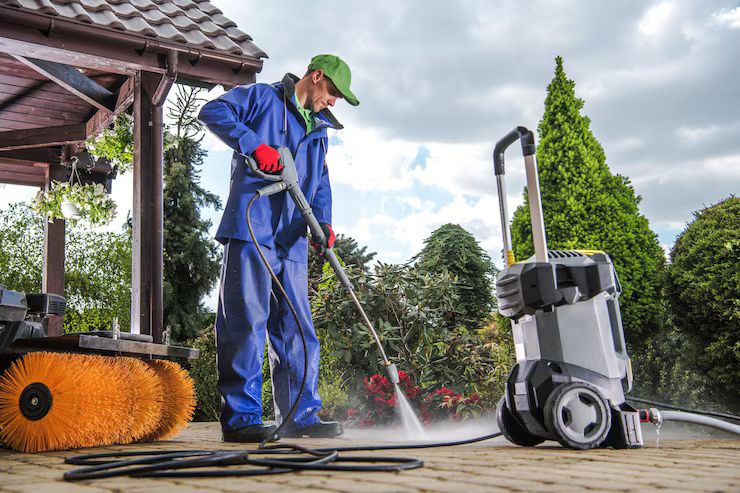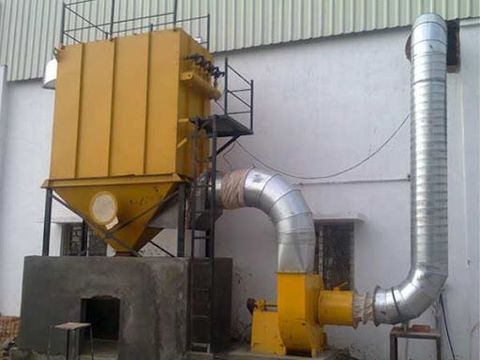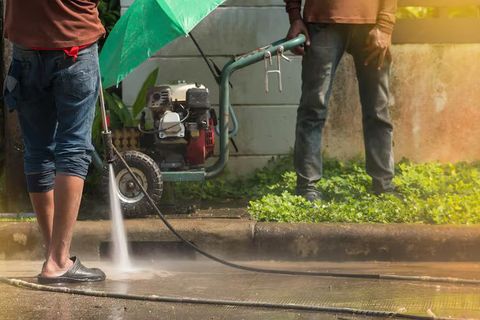Discover How Pressure Washers Make Cleaning Faster and Easier
Pressure washers were developed to make cleaning more efficient by using high-pressure water to remove dirt, grime, stains, and buildup that regular cleaning tools cannot handle easily. They work by pushing water at high speed through a hose and nozzle, creating a force strong enough to clean large or stubborn surfaces.
Originally used for industrial purposes, pressure washers quickly became popular for residential and commercial applications. Their ability to clean outdoor spaces, vehicles, machinery, walkways, and building exteriors made them essential tools for both homeowners and professionals.

Today, pressure washers exist in multiple types—electric, gas-powered, hot-water systems, portable units, and compact models—allowing users to choose options that match their cleaning needs. As modern living and workplaces prioritize hygiene, maintenance, and cleanliness, pressure washers contribute to better upkeep and improved efficiency.
Importance – Why Pressure Washers Matter and Who They Help
Pressure washers play an important role in modern maintenance activities. They support faster cleaning, reduce manual effort, and help maintain the appearance and safety of surfaces.
Who Uses Pressure Washers
-
Homeowners cleaning patios, driveways, gardens, and vehicles
-
Commercial building managers maintaining walkways, facades, and parking areas
-
Industrial facilities cleaning machinery and equipment
-
Hospitality businesses such as hotels and resorts
-
Transport and logistics companies washing fleets
-
Municipal services for public spaces and sanitation
Problems Pressure Washers Solve
-
Time-consuming cleaning tasks — They significantly reduce cleaning time.
-
Stubborn dirt and debris — High-pressure water can remove buildup that manual scrubbing cannot.
-
Large areas that need frequent maintenance — Ideal for driveways, parking lots, or industrial floors.
-
Hygiene and sanitization needs — Helpful in outdoor and public environments.
-
Surface protection — Gentle pressure options help avoid damage from harsh scrubbing.
A simplified comparison helps illustrate efficiency:
| Cleaning Method | Time Required | Effectiveness | Manual Effort |
|---|---|---|---|
| Manual scrubbing | High | Moderate | High |
| Traditional hose | Medium | Low | Medium |
| Pressure washer | Low | High | Low |
With rising demand for efficient cleaning in cities, workplaces, and homes, pressure washers continue to grow in relevance.
Recent Updates – Trends and Developments (2024–2025)
In the past year, the pressure washer industry has seen innovations in efficiency, safety, and sustainability. Several updates are shaping how residential and industrial users choose their cleaning equipment.
1. Growth of Electric and Eco-Friendly Models (2024)
Electric pressure washers gained popularity due to lower noise levels, reduced emissions, and ease of use. Many brands introduced models with improved motors and water-saving technology in 2024.
2. Smart Control Features
Newer models (2024–2025) include:
-
Adjustable pressure settings
-
Digital PSI displays
-
Smart triggers that reduce water wastage
-
Automatic stop/start systems
These features help prevent misuse and improve safety.
3. Use of Portable and Compact Units
Portable washers equipped with rechargeable batteries gained traction, especially for light home cleaning tasks and car washing.
4. Industry Safety Enhancements
Several manufacturers improved safety mechanisms such as:
-
Thermal protection
-
Leak detection sensors
-
Nozzle locks and pressure-regulation systems
5. Commercial Upgrades
Businesses now use hot-water pressure washers and industrial-grade machines for productivity and compliance with sanitation standards. Industries such as logistics, hospitality, and construction invested more in high-capacity machines throughout 2024.
These trends reflect a growing shift toward convenience, safety, and sustainable water usage.
Laws or Policies – Regulations Affecting Pressure Washer Usage
Regulations surrounding pressure washers differ by country, but common policy areas include:
1. Water Usage Regulations
Some regions have water-use guidelines, particularly in areas facing shortages. These may include:
-
Usage restrictions during specific seasons
-
Requirements for water-efficient nozzles
-
Wastewater management rules
2. Noise Regulations
Local authorities may enforce noise limits, especially in residential zones. Electric pressure washers often meet these requirements due to lower sound levels.
3. Safety Standards
Pressure washers must comply with:
-
Electrical safety certifications
-
Mechanical safety standards
-
Proper labeling on pressure levels
Manufacturers often follow guidelines provided by national standards bodies.
4. Environmental Regulations
In some countries, commercial users must ensure:
-
Wastewater does not flow into storm drains
-
Chemicals used with washers comply with environmental norms
5. Workplace Safety Policies
For businesses, workers who operate industrial-grade pressure washers may require:
-
Safety equipment
-
Training on pressure hazards
-
Compliance with occupation safety guidelines
These policies ensure machines are used responsibly and safely.
Tools and Resources – Helpful Apps and Platforms
Selecting, using, and maintaining pressure washers becomes easier with the right tools and resources. Here are useful options:
Selection and Comparison Tools
-
PSI/GPM Calculators – Helps determine required pressure for different cleaning tasks
-
Online Product Comparison Sites – Compare features, PSI levels, and specification charts
-
Noise Level Calculator Tools – Estimate sound output for residential compliance
Maintenance Tools and Resources
-
Maintenance Log Templates – Track servicing, nozzle changes, and inspections
-
Troubleshooting Guides (PDF formats) – Helps resolve common issues
-
Spare Part Finder Tools – Locates compatible hoses, nozzles, and seals
Operational Resources
-
Water Usage Estimator Tools – Calculates consumption based on running time
-
Cleaning Surface Guide Charts – Provide recommended pressure settings for surfaces
-
Safety Checklist Templates – Ensure proper handling and protective gear
Educational Sources
-
Manufacturer manuals
-
Cleaning technique tutorial videos
-
Industry forums discussing surface safety and best practices
Using these tools helps ensure a longer machine lifespan and safer operation.
FAQs – Clear and Useful Answers
1. What is a pressure washer used for?
A pressure washer is used for cleaning outdoor areas, vehicles, walls, machinery, and surfaces that accumulate dirt or stains. It uses high-pressure water to clean faster than manual methods.
2. Are pressure washers safe for all surfaces?
Not all surfaces can handle high pressure. Delicate surfaces such as wooden furniture, soft paint, or brittle materials require low- or medium-pressure settings. Many modern models include adjustable pressure controls.
3. Do pressure washers use a lot of water?
Pressure washers typically use less water compared to traditional hoses because the water is used more efficiently at high pressure. Water consumption varies based on the machine’s flow rate.
4. How long does a pressure washer last?
With regular maintenance—such as cleaning nozzles, inspecting hoses, and storing equipment properly—pressure washers can last several years. Industrial models may last longer with scheduled servicing.
5. Should I use detergent with a pressure washer?
Some tasks, such as washing cars or cleaning greasy surfaces, may require compatible detergents. Users should only use detergents recommended by the manufacturer to prevent machine damage.
Final Thoughts
Pressure washers have become an essential tool for homes, businesses, and industries that need efficient cleaning solutions. They help reduce manual effort, save time, improve hygiene, and maintain surfaces effectively. With new trends in energy efficiency, digital features, and portable options, modern pressure washers are easier to use than ever before.
Understanding regulations, safety tips, and available resources allows users to operate pressure washers responsibly and maintain them properly. Whether for residential, commercial, or industrial use, pressure washers remain a practical choice for achieving cleaner and well-maintained environments.






